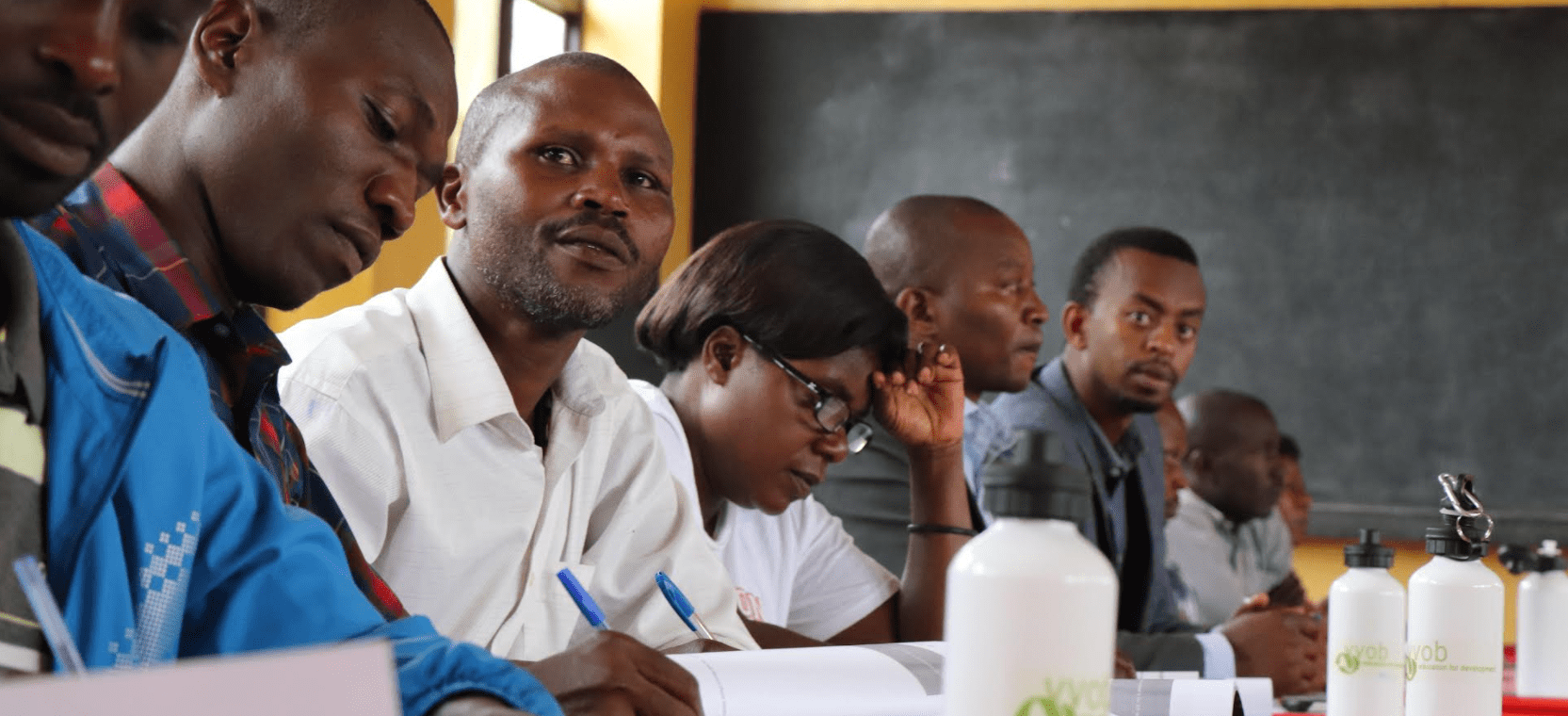
The Rwanda Basic Education Board (REB) has a strong vision to ensure that all schools have a quality school leader in place who supports teachers and holds learners’ aspirations high. As school leadership reform has nudged towards the top of policymakers’ agendas, the provision of continuous professional development (CPD) to school leaders in Rwanda has also expanded. Since 2016, VVOB – education for development, an active member of the WISE ALL-IN community, has been working with REB and the University of Rwanda – College of Education (UR-CE) to capacitate school leaders as instructional leaders. Through two complementary CPD modalities – a one-year blended training diploma program and participation in professional learning communities facilitated by Sector Education Inspectors – school leaders are taken through the key building blocks of effective school leadership whilst also developing cross-cutting skills like gender-responsiveness, inclusive education, Monitoring and Evaluation (M&E) and Information and Communication Technology (ICT).
So far, more than 1,200 school leaders have been trained in 17 out of 30 districts. A recent external evaluation shows that the impact on the daily practices of school leaders is very promising. The CPD modalities are expected to scale up to the remaining districts so that all school leaders in Rwanda have what it takes to be effective instructional leaders.
Changes in leadership beliefs and practices
In Rwanda, school leadership is traditionally top-down, with teachers accountable to headteachers who are, in turn, accountable to their hierarchical superiors at the district level. Changing this mindset and introducing shared leadership is an important element of REB’s vision of competent headteachers. After taking part in the training program, school leaders have a better understanding of the value of shared leadership, and they change their perceptions towards it. Importantly, these changed beliefs translate into changes in practice. Some school leaders make time in the school timetable so that school-based mentors can set up communities of practice of subject teachers and organize formal induction programs for new teachers. Others create platforms for shared decision-making such as School Improvement Planning teams. As a result of this evolution towards shared school leadership practices, teachers, in turn, indicate having more decision-making power when it comes to school improvement planning and more autonomy in lesson planning and assessments. Teachers feel more valued and motivated and can approach their school leaders without fear of rejection or reprisal.
“I used to think that I am the center of everything in the school, but after studying about sharing responsibilities, I learned that everyone is responsible for every activity in school. If something is not right, everyone in school has the right to comment about it or come to me and say ‘this is wrong, let us change it’ . . . I have become more friendly with the teachers due to this collaboration and working together.” Headteacher, Rwandan Secondary School.
“There are leaders who thought that evaluating a teacher means focusing on what they do wrong, and punishing them. But, after the training, they have understood that evaluating a teacher means to advise and guide, not to threaten.” School-based Mentor, Rwandan Secondary School.
Key ingredients of effective CPD for Rwandan school leaders
What makes the CPD modalities for school leaders in Rwanda effective? There are many reasons, all of which are interlinked. At VVOB, we think the six key ingredients are:
1. Enabling policy environment: Improving the competencies of school leaders is high on the agenda of the Rwandan Ministry of Education and several policies have been developed to that effect. The CPD modalities put in place by VVOB and partners are aligned with these policies to ensures buy-in at different levels of the education system (Ministry, districts, and schools).
2. High need: To date, school leaders in Rwanda do not need to hold a specific school leadership certificate or diploma to qualify for their position. As a result, most Rwandan school leaders did not receive any training specific to their role when entering the profession. The combination of CPD modalities now provides what is often their first opportunity for deep, collegial reflection and renewed practice.
3. Design and content: The one-year training program and structure of the professional learning communities for school leaders have been carefully designed, building on the latest evidence on school leadership, the Rwandan professional standards for effective school leadership, and on principles for effective adult learning. The training program has been contextualized in collaboration with REB and UR-CE.
4. Strong, equitable partnerships: The partnership in place between REB, UR-CE and VVOB is long-standing, with clearly defined mandates and responsibilities for each stakeholder.
5. Synergetic effects: The two CPD modalities are not implemented as standalone activities. Other actors in the education system are targeted simultaneously, including through training on Educational Mentorship and Coaching for School-Based Mentors and Sector Education Inspectors and training on Educational Mentorship and Coaching for STEM subject leaders. District officials are trained in Effective School Leadership together with school leaders.
6. Iterative learning cycles: School leaders are trained in cohorts. After each cohort, the training program is improved based on the latest monitoring and evaluation (M&E) data. Data is collected on four levels: reaction, learning, behavior and results following the Kirkpatrick evaluation of the training framework. This allows for a deep analysis of results and enables program staff and partners to look at the challenges from different angles.